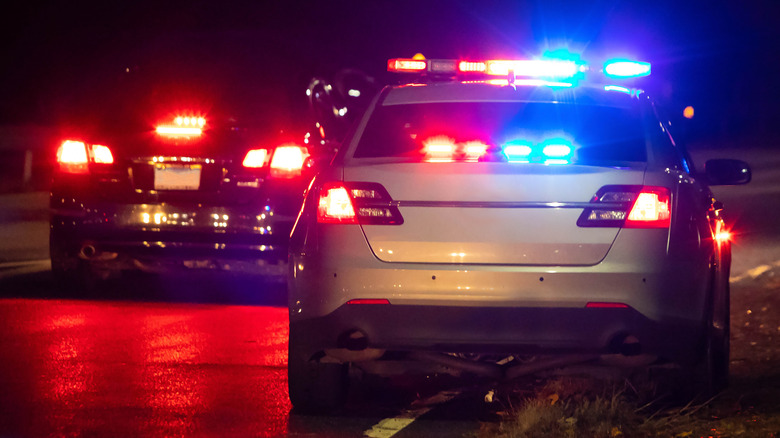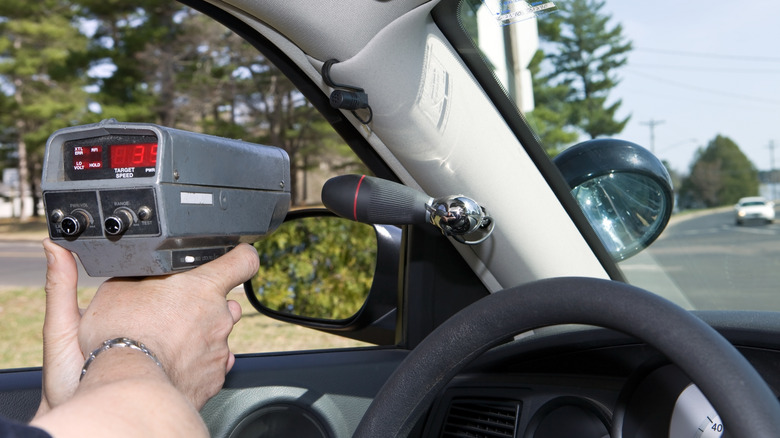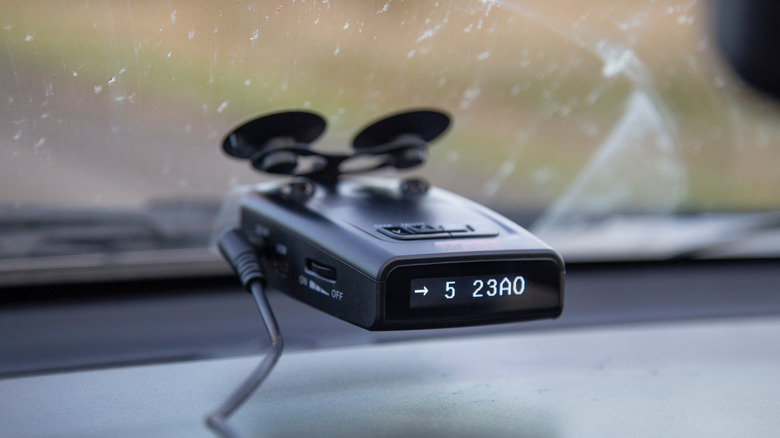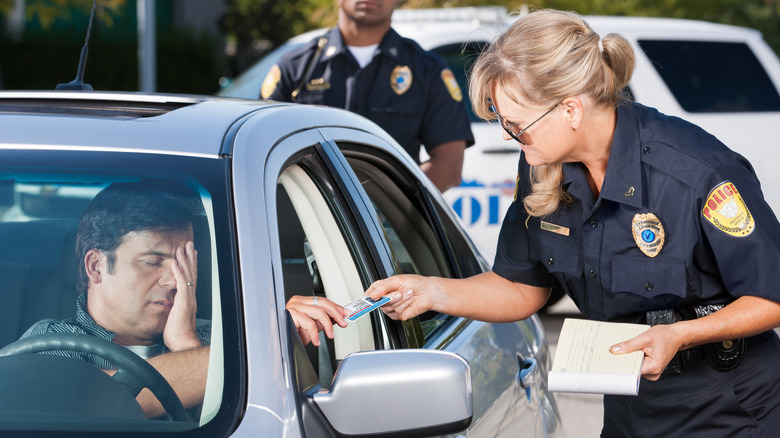Are Radar Detectors Worth It? And Are They Legal?
The use of radar detectors has remained a hotly debated practice for as long as drivers have been trying to avoid cops on the road. Generally speaking, you'll only ever come into contact with police officers while driving if you've done something you shouldn't have. Of course, there are many reasons to interact with police officers, and plenty are positive encounters. However, the use of a radar detector is typically reserved for avoiding speeding tickets and fines.
The radar detector is a device that identifies the signature of a police radar gun and alerts drivers to the presence of cops hunting for speeders. Ideally, the device gives drivers a crucial warning that allows them an extra couple of seconds to slow down and avoid being pulled over if they're speeding.
But are radar detectors worth it? Do they actually do what they're supposed to? Moreover, are radar detectors legal to use? Or might you be in even more trouble by installing one in your vehicle? The answers to these questions are surprisingly more complicated than you might expect.
You're out of luck in Mississippi and Virginia
For starters, drivers in Mississippi and Virginia shouldn't purchase or install a radar detector in their car for any reason. State law in both of these parts of the country prohibits the use of radar detectors, and can result in even higher fines or even a mandated court appearance. However, drivers across the rest of the United States can make use of radar detectors if they desire.
Once again, it's important to note that if you do deploy this tool (outside of those states), and have a reason to drive through Mississippi or Virginia, you'll need to remove the device from your car before crossing the state boundary. It's illegal not only to use a radar detector, but to carry one in Mississippi and Virginia as well.
Commercial drivers are also unable to carry or use a radar detector in their vehicle. This is regulated by federal law, and therefore applies across the country, no matter what state you call home. Lastly, many states prohibit the use of radar detectors in school zones, construction areas, and other similarly regulated spaces. Checking with your local guidelines can help prevent unwanted complications in states where it's legal to use them.
Do radar detectors work?
Many radar detectors work exceedingly well to identify hidden police officers scanning for speeders. Every radar detector will work a little differently, and some pick up certain frequencies better than others (i.e., X, K, and Ka bands). It's also worth mentioning that the sensors used to operate automatic doors emit the same radar frequencies as police speed guns, which means you're likely to have a flurry of activity when driving through a strip mall.
Determining whether the radar detector objectively "works" for your needs is a bit more complicated, however. A radar detector won't prevent you from receiving a speeding ticket all on its own. Speeding, in general, isn't exactly an advisable practice.
Still, around half of drivers surveyed in a 2016 AAA Foundation study reported driving 15 miles per hour over the speed limit on the highway. Likewise, roughly the same percentage noted a 10 mile per hour overage on residential streets at some time during the previous month. The reality is that drivers speed regularly, and radar detectors can offer a timely warning to refrain from this bad habit in the crucial seconds before they're caught.
Things to consider when using a radar detector
While a radar detector might seem like a useful addition to your vehicle, there are some things to consider before purchasing one. For starters, a reliable radar detector will cost a few hundred dollars at minimum. You might find a cheaper price, but the lower down the price range you go, the less effective the unit is likely to be.
Similarly, patrol officers have become better at using radar guns with practice. Zapping cars from behind or at a 90-degree angle to the direction of travel severely reduces the efficacy of a radar detector because they identify the return bounce from a radar's blast once it hits another vehicle. Alternative angles just don't yield the same volume of residual cone moving in a direction that your detector can identify. Limitations in range at side and rear angles should be high on your list of factors when selecting any radar detector as a result.
As well, if you are pulled over, police officers have the flexibility to exercise their own judgement when it comes to writing a ticket or simply issuing a warning. A radar detector strapped prominently to your windshield may send the message that you feel above the law, and could kick off a decidedly negative interaction with an officer.



